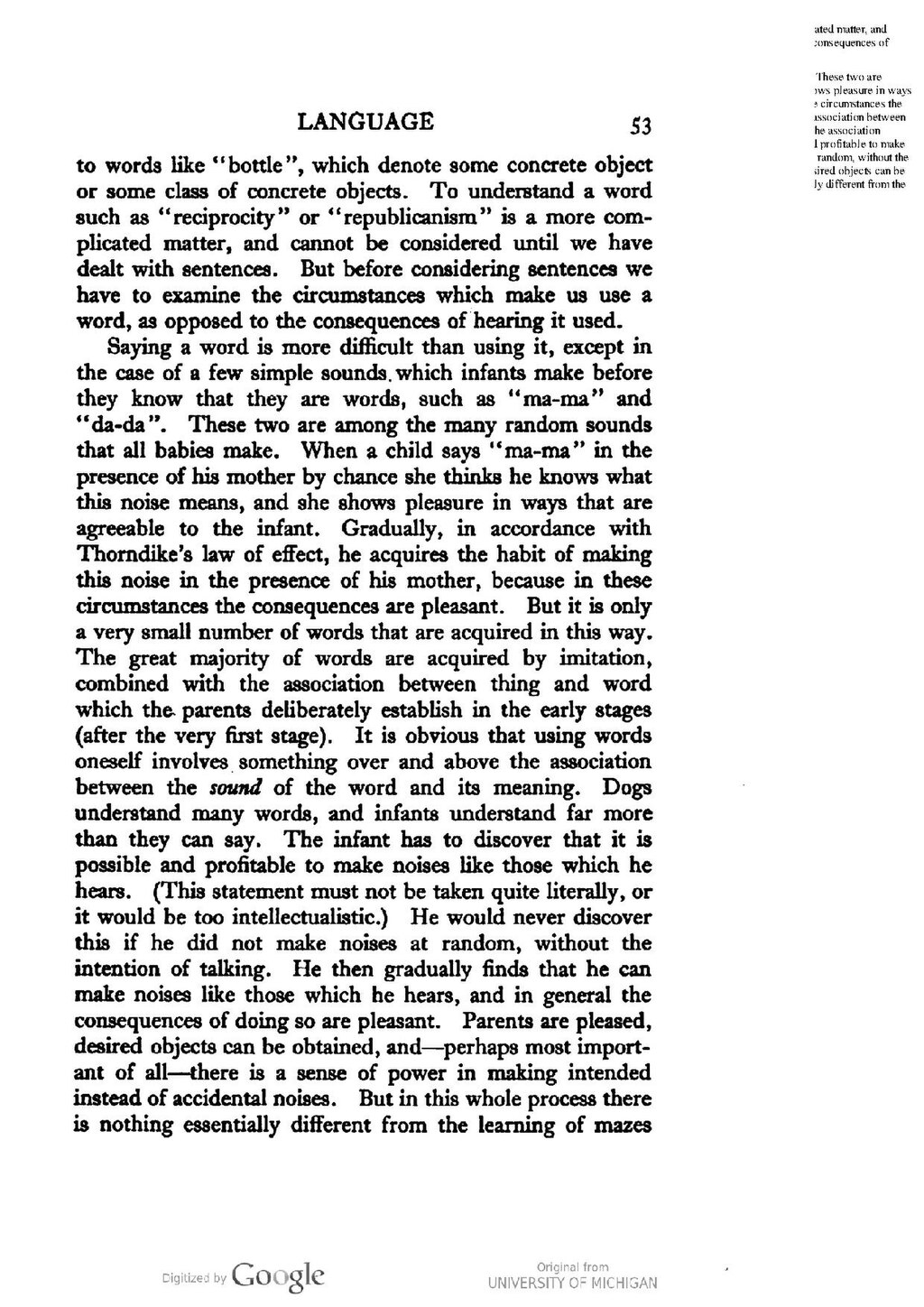to words like "bottle", which denote some concrete object or some class of concrete objects. To understand a word such as "reciprocity" or "republicanism" is a more complicated matter, and cannot be considered until we have dealt with sentences. But before considering sentences we have to examine the circumstances which make us use a word, as opposed to the consequences of hearing it used.
Saying a word is more difficult than using it, except in the case of a few simple sounds, which infants make before they know that they are words, such as "ma-ma" and "da-da". These two are among the many random sounds that all babies make. When a child says "ma-ma" in the presence of his mother by chance she thinks he knows what this noise means, and she shows pleasure in ways that are agreeable to the infant. Gradually, in accordance with Thorndike's law of effect, he acquires the habit of making this noise in the presence of his mother, because in these circumstances the consequences are pleasant. But it is only a very small number of words that are acquired in this way. The great majority of words are acquired by imitation, combined with the association between thing and word which the parents deliberately establish in the early stages (after the very first stage). It is obvious that using words oneself involves something over and above the association between the sound of the word and its meaning. Dogs understand many words, and infants understand far more than they can say. The infant has to discover that it is possible and profitable to make noises like those which he hears. (This statement must not be taken quite literally, or it would be too intellectualistic.) He would never discover this if he did not make noises at random, without the intention of talking. He then gradually finds that he can make noises like those which he hears, and in general the consequences of doing so are pleasant. Parents are pleased, desired objects can be obtained, and—perhaps most important of all—there is a sense of power in making intended instead of accidental noises. But in this whole process there is nothing essentially different from the learning of mazes
